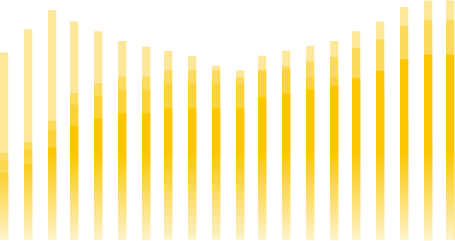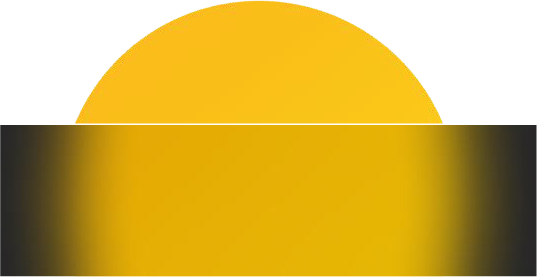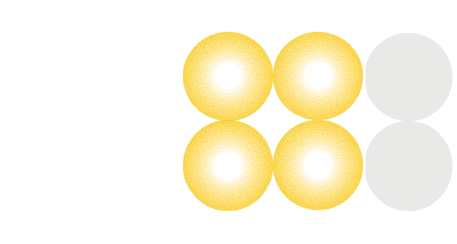Credit Builders:
Empowering Financial Futures
Through strategic partnerships, grants, and an employee-led Financial Literacy Service Corps, Synchrony is equipping teachers, students, and communities with the tools to make smarter financial decisions, creating a ripple effect that will shape America’s economic future.
The Ripple Effect:
Empowering Students Today for a Stronger Economy Tomorrow
In a noisy high school classroom in Milford, Ohio, Kathy Baugh is doing more than teaching personal finance – she’s laying the groundwork for her students’ financial futures. For the past 28 years, Baugh has been an anchor in her school community, guiding students through critical decisions about credit, savings, debt, and budgeting that will shape their lives long after they leave the classroom.
“My students tell me this is the most important class of their lives. It’s not just about solving financial problems – it’s about giving them the tools to make smarter decisions,” Baugh shares. “They’re not just learning for themselves, either. They’re going home and teaching their parents at the dinner table and asking questions that spark important family conversations.”
Across the U.S., teachers like Baugh are at the forefront of personal finance education, a movement that gained urgency as more states add requirements for students to take a personal finance course in order to graduate. And while educators understand the importance of personal finance education, they’re often left without the resources and training needed to bring these topics to life in their classrooms.
That’s where Synchrony is stepping in.
First, through our Education as an Equalizer philanthropic initiative, Synchrony Foundation is granting $1 million to five non-profit organizations, including the Council for Economic Education (CEE), DonorsChoose, Jobs for America’s Graduates (JAG), Jump$tart, and Operation Hope. These 5 national nonprofits in the education space are all dedicated to providing direct support to teachers and empowering students to build healthier financial futures. These grants will enable educators to teach personal finance more effectively, while building practical, lifelong skills for their students.
A new Synchrony-commissioned survey shows more than 80% of teachers say financial education is essential for their students’ success, but 2 in 3 teachers report struggling with student engagement and a lack of relevant lessons to teach effectively.*
Synchrony polled nearly 400 educators across the country and found that...

80% of teachers cited financial education as “essential, extremely important, or very important” in their curriculum

<60% of educators feel “very confident” about teaching financial education

2/3 of educators report struggling with student engagement, and a lack of relevant content to teach financial education effectively
Source: Methodology: Based on responses to an August 2025 online survey of 375 K-12 public school educators across the United States as conducted by the Council for Economic Education, DonorsChoose and Jobs for America's Graduates.
“For students, understanding financial basics – like how credit scores work or why budgeting matters – isn’t just academic knowledge; it’s real-world empowerment,” says Denise Yap, President of the Synchrony Foundation. “But without adequate support and training, those lessons don’t reach their full potential. By equipping educators, we have the ability to create ripple effects that will transform whole communities.”
For Narciss Greene, a high school teacher in East Lyme, Connecticut, these resources have been game changers. Greene blends insights from her own financial journey with creative tools provided by the CEE to make personal finance accessible and relatable for her students.
Greene shared how students often come in with misconceptions about credit. “They think credit cards should be avoided at all costs,” she says. “But once they understand how credit really works, they see its power – like knowing how having a good credit score can lower car loan rates or even save money on insurance premiums. These lessons stick because we make them personal, breaking down the jargon into real-world examples.”

Taking it One Step Further – Synchrony’s Financial Literacy Service Corps
Synchrony’s approach goes even further. With the formation of the Financial Literacy Service Corps – a volunteer-powered “train-the-trainer” model – Synchrony employees are learning how to facilitate personal finance workshops in schools, community centers, with Synchrony business partners and through local community organizations.

Derrick Ramsey, Synchrony’s home-grown financial literacy champion, has seen firsthand how education can change lives. He started out small, taking the knowledge he learned from his parents and his local community banker when he was young and turning it into a curriculum for his coworkers. Later, he began sharing his knowledge with his community and at schools and universities. What started as casual workshops with colleagues at Synchrony has evolved into a widescale program impacting whole communities – from Harlem youth empowerment to university students learning the basics of credit and investment.
Now, Ramsey is leading the charge for Synchrony’s Financial Literacy Service Corps, enlisting fellow coworkers to get out in the community and talk to students and their families about personal finance and giving people the tools and inspiration to build a healthier financial future.
“For some people, finance feels daunting,” Ramsey explains. “Our mission is to simplify it and show how these everyday decisions – whether it’s setting a budget or choosing the right credit card – can open doors to a financial opportunity.”
With hands-on lessons for students and community leaders, Synchrony aims to amplify what teachers like Baugh and Greene are building in the classroom: practical, tangible skills that redefine financial independence.
“In launching the Financial Literacy Service Corps, we hope to create a movement,” said Yap. “We are starting with our team of volunteers led by Derrick, but one day envision our partners and broader ecosystem joining us too.”

Driving the Economy of Tomorrow
Synchrony’s work is more than an investment in personal finance education; it’s an investment in financial mobility and our country’s future. By collaborating with teachers, students, nonprofits, and its own employees, Synchrony aims to reshape how Americans learn about and engage with their financial health.
As Synchrony’s Education as an Equalizer philanthropic initiative continues to grow, it’s clear that the tools and resources provided to educators today are building the foundation for tomorrow’s economy.
- *Methodology: Based on responses to an August 2025 online survey of 375 K-12 public school educators across the United States as conducted by the Council for Economic Education, DonorsChoose and Jobs for America's Graduates.